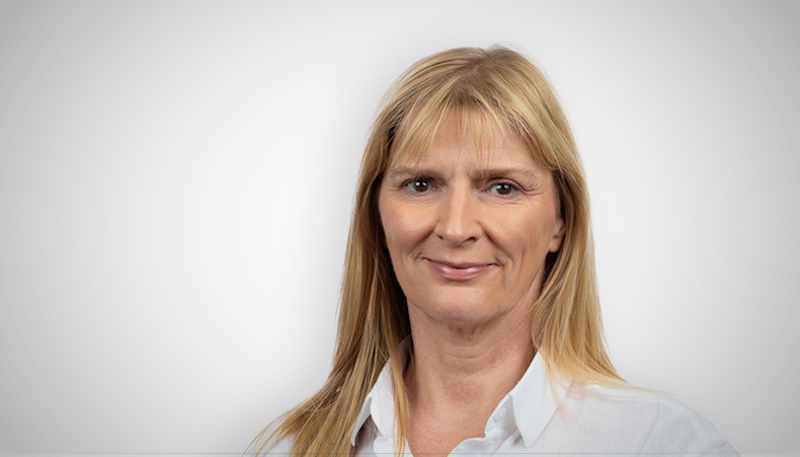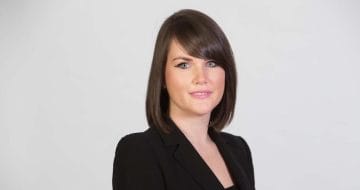Legal Cheek Careers sits down with Vanessa Cooper, partner in TLT’s tech, IP and data team, to explore her journey to partnership and how technology is reshaping legal practice

“Not acing your A-levels is not the end of the world,” says TLT partner Vanessa Cooper, reflecting on her unconventional path into law. She’s refreshingly candid about her early struggles. “I didn’t perform strongly in my A-levels,” she admits, having spent six years working in retail before finding her footing in the legal world.
Determined to change direction, she enrolled on a criminology course where a law module caught her attention. “I thought, I quite like that. I could do that,” she remembers. That spark of interest led her to study law, complete the Legal Practice Course and secure a training contract. “I was six years older than the norm when I did all that,” she says, showing that there’s no single route or timetable to success in the legal world.
After qualifying, Cooper’s career took her across both public and private sectors. She started in private practice before moving in-house, first with a local authority, then the Metropolitan Police, and later at Vodafone. In 2018 she returned to private practice, joining national law firm TLT. The firm’s culture and inclusivity appealed to her. “TLT had a really strong culture of being incredibly authentic, approachable people,” she explains. “It felt like a much better fit than some of the more traditional firms.” The move proved right and five years later, in 2023, she was elevated to partner.
Having worked in different legal environments, Cooper has a clear view of how they compare. “If you’re in-house, you’re generally not the core business,” she explains. “Legal teams can frustratingly sometimes be seen as ‘a blocker’ by non-lawyer colleagues”. In contrast, she says, “in a law firm, you are the core business. You can bring ideas, be creative and shape how things are done, which you don’t really get to the same extent in-house.” Private practice also provides stronger support structures. “You get admin help, tech help, and a lot of support around AI,” she notes. “You don’t necessarily get that in-house.” That infrastructure has become vital as technology increasingly transforms legal work.
Artificial intelligence, in particular, is making a noticeable difference. Cooper gives an example from a recent project where a client asked for a large, multi-schedule contract to be summarised in a slide deck. It would have taken hours if done manually. “Instead of giving that to a junior to trawl through, I went to our AI specialists,” she says. “They wrote me a bespoke programme that extricated the key information much more efficiently.” The system isn’t fully automated yet, she’s quick to add. “It’s not co-pilot, so it won’t actually build the slides for you,” she laughs. “But it makes the job much quicker and easier than doing it all by hand!”
Still, she’s realistic about what AI can and can’t do. “We’re finding that AI’s strength doesn’t lie in being subjective,” she says. Understanding a client’s business, goals and appetite for risk requires human judgement. “AI doesn’t really think creatively around a problem. It’s brilliant at repetitive work, but nuance and strategy still sit with people.” At its current stage, she says, AI should be used with care. “Because it’s very literal, you wouldn’t use it for something that needs subtlety or strategic thought.” She recalls several high-profile examples where AI was given complex legal problems and produced questionable results. “Those situations show it’s a tool that needs direction,” she says. “It’s only as good as the person using it.”
For junior lawyers, the rise of AI brings both opportunity and change. On the positive side, it means less time spent on routine work. “That’s brilliant for trainees and young lawyers,” Cooper says with a smile. “You won’t have to do all the really tedious, laborious stuff.”
With technology taking over repetitive tasks, trainees can focus on higher-value work that develops real skills. “It should give you time to think about the task and the value you can add,” she says. Instead of just pulling out key clauses, trainees can analyse them, consider whether provisions are workable and how they might be improved for clients. That shift, she believes, will lead to better, more thoughtful lawyers. “It’s about moving from simply doing the task to understanding why you’re doing it. That’s where you learn the most.”
Looking ahead, Cooper is optimistic about how technology will continue to shape the legal profession. Having recently joined TLT’s Tech, Data and IP team, she says she’s “right in the middle of it” when it comes to emerging trends. “The really big areas now are data and AI,” she says. “They’re not passing fads. Data and AI are here to stay.”Her advice for future lawyers is to embrace these developments. “If you’re just starting out, I’d seriously consider these areas,” she says. “They’re exciting, and I don’t think demand for tech-savvy lawyers will slow down any time soon.”
But while Cooper is enthusiastic about innovation, her main message is about attitude. “Just get involved,” she says. “If something interests you, contact people working in that area. Ask questions, look for experience, find a mentor.” Showing what she calls “practical enthusiasm” and being willing to “have a go” can make all the difference. “Then you’ve cracked it really,” she adds.
Her own route to partnership didn’t follow a straight line, which she believes is a positive thing. “There isn’t just one path,” she says. A traditional training contract after university is only one way in. “You can start straight after A-levels through solicitor apprenticeships,” she adds. “They’re equally valid and becoming more common.” What matters most, she says, is persistence and a willingness to learn.
Cooper’s story, from struggling at A-level to partnership at a major law firm, shows that determination and curiosity can take you a long way. In a profession that’s changing faster than ever, her message to the next generation of lawyers is simple — keep an open mind, embrace new tools and never underestimate where a single moment of curiosity can lead.
Vanessa Cooper will be speaking at The Big Commercial Awareness Themes of 2025-26 — with DWF, Goodwin, Irwin Mitchell, Morrison Foerster, TLT and ULaw. This virtual student event will take place on Monday 10 November. Apply now.
About Legal Cheek Careers posts.


